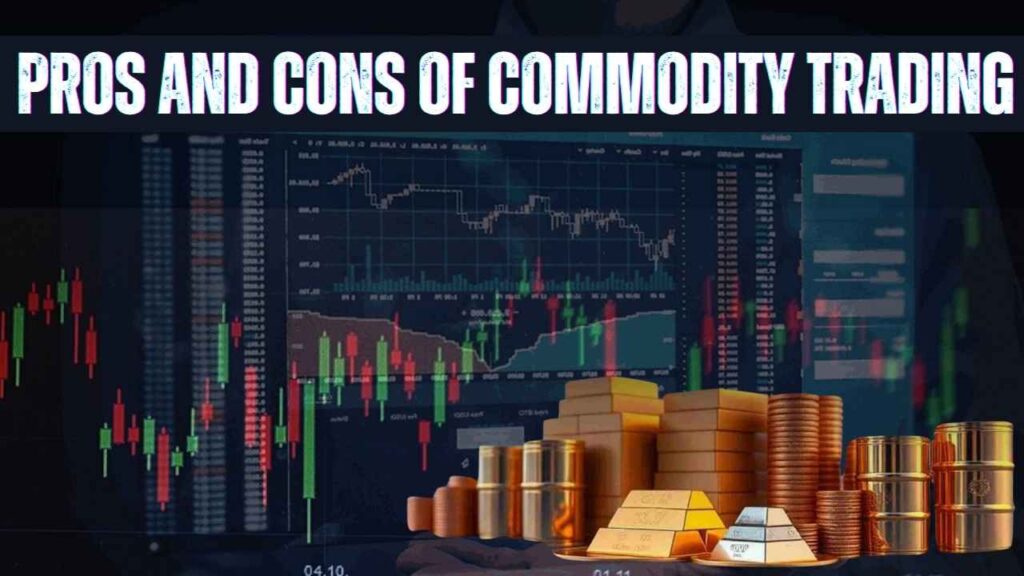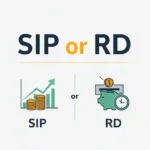Commodity trading entails the purchase and sale of raw materials like gold, oil, agricultural commodities, and industrial metals. These markets are central to the world economy and present special opportunities for investors who wish to hedge against inflation, diversify their portfolios, and access growth industries. Commodity trading, however, is also famous for its price volatility, leverage risks, and sophisticated market dynamics. Comprehending the advantages and disadvantages of commodity trading is important for anyone who wishes to tread the path in the challenging yet potentially lucrative market.

Pros of Commodity Trading
1. Diversification
Investing in commodities brings some diversification that tends to be uncorrelated with common asset classes such as stocks and bonds. This implies:
- Risk Reduction: Adding commodities to your portfolio can reduce overall risk, as they often perform differently during economic cycles.
- Inflation Hedge: Commodities like gold and oil tend to perform well during inflationary periods, protecting your portfolio from eroding purchasing power.
2. High Leverage Potential
Typically, commodity markets provide high leverage, where traders can have control over a large position using relatively little capital. This will magnify profits when trades are in your direction.
- Capital Efficiency: Leverage can help maximize returns on a limited amount of capital.
- Short-Term Opportunities: Traders can use leverage to take advantage of short-term price movements effectively.
3. Liquidity and Market Accessibility
- Global Market Reach: Commodity exchanges like the Multi Commodity Exchange (MCX) and National Commodity & Derivatives Exchange (NCDEX) provide ample liquidity, making it easier to enter and exit positions.
- Transparency: These exchanges operate under strict regulatory guidelines, ensuring that price data is transparent and reliable.
4. Potential for Strong Returns
The dynamic nature of commodity markets implies that, in the right circumstances, commodities can provide strong returns. Supply shortages, geopolitical tensions, or unexpected demand spikes can cause prices to rise sharply.
- Exponential Gains: In a bullish market, commodity prices can soar, offering exponential returns on investments.
- Trading Opportunities: The volatility and frequent price changes can create multiple trading opportunities on a daily basis.
Cons of Commodity Trading
1. High Volatility
Commodity markets are well known for being highly volatile as a result of weather conditions, geopolitical developments, and global supply-demand mismatches.
- Price Swings: Sharp price fluctuations can lead to substantial losses if not managed properly.
- Market Uncertainty: Traders must contend with unpredictable market movements that can be challenging to forecast.
2. Leverage Risks
While leverage can amplify gains, it can also exacerbate losses. Over-leveraging can lead to losing more than you initially invested.
- Margin Calls: High leverage increases the risk of margin calls, forcing you to deposit additional funds or close positions prematurely.
- Risk of Ruin: Poor risk management with leveraged trades can quickly deplete your trading capital.
3. Complexity and Learning Curve
Commodity trading entails a steep learning curve and necessitates complete knowledge of market dynamics, trading platforms, and risk management strategies.
- Technical Analysis: Successful trading often demands expertise in technical analysis and chart patterns.
- In-depth Knowledge: Traders must stay informed about global economic indicators, weather conditions, political events, and regulatory changes that impact commodity prices.
4. Regulatory and Geopolitical Risks
Commodity markets can be greatly affected by regulatory policies, government actions, and geopolitical developments.
- Policy Changes: New regulations or changes to fiscal policies can dramatically affect commodity prices.
- Global Events: International conflicts, sanctions, or trade agreements can disrupt supply chains and create market uncertainty.
5. Costs and Fees
Trading commodities often entails numerous fees like brokerage fees, exchange fees, and transaction costs.
- Cost Erosion: High transaction costs can erode your profits, especially if you are making multiple trades.
Managing Commodity Trading Risks
To navigate the complexities and risks of commodity trading, consider the following strategies:
- Diversification: Don’t put all your capital into one commodity. Spread your investments across different sectors.
- Risk Management: Use stop-loss orders, manage leverage carefully, and define clear entry and exit points.
- Continuous Learning: Stay updated with market trends, economic news, and regulatory changes.
- Professional Advice: Consider consulting a financial advisor or using advanced trading tools and platforms for better risk management.
Final Thought
Trading commodities has the potential of diversifying and yielding high returns, but it also bears the risks that have to be navigated cautiously. By knowing the advantages and disadvantages of commodity trading, you can create a harmonious strategy that taps the expansion potential without the inherent risks. Whether you’re a seasoned trader or new to the game, the secret to successful commodity trading is being well-informed and proactive in mitigating risk while remaining disciplined.
Frequently Asked Questions (FAQ)
Q1. What is commodity trading?
A: Commodity trading is buying and selling raw materials such as oil, gold, farm products, and industrial metals on specialized markets.
Q2. How does leverage work in commodity trading?
A: Leverage enables traders to trade large positions with limited capital, multiplying gains and losses.
Q3. Why is diversification important in commodity trading?
A: Diversification lowers total risk by investing in different commodities, which could react differently to different economic situations.
Q4. What are the main risks of commodity trading?
A: The principal risks are market volatility, losses due to leverage, changes in regulations, geopolitical uncertainties, and high costs of transactions.
Q5. Can I hedge my risk in commodity trading?
A: Yes, derivative instruments like futures and options, and stop-loss orders, can be used to manage and offset risk.










